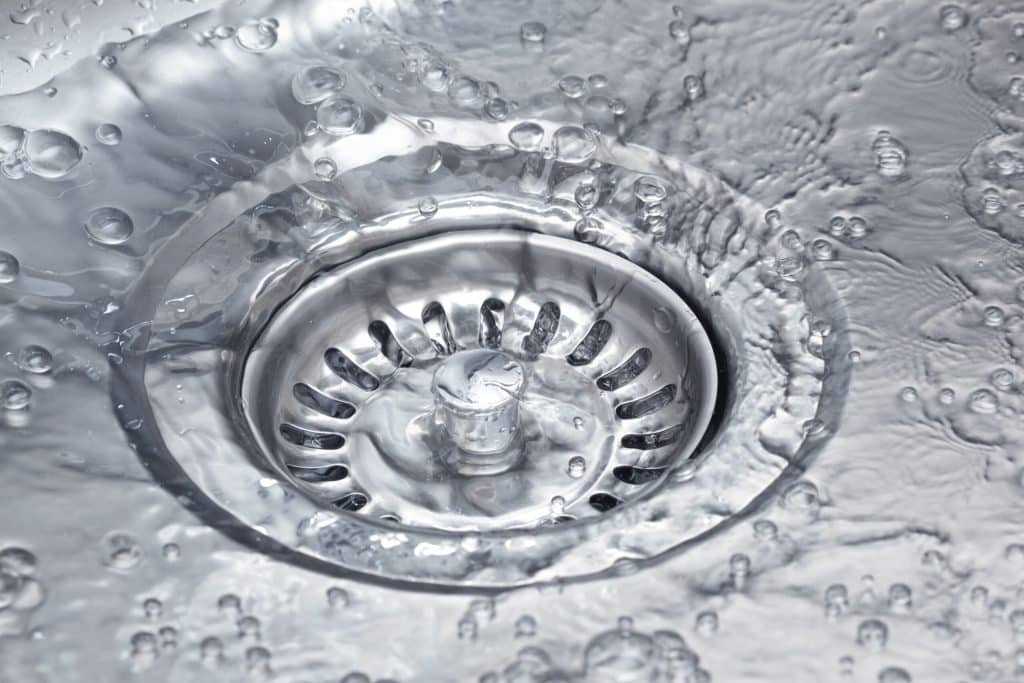There’s nothing worse than walking into your kitchen or bathroom to find a clog causing slow drainage, standing water, or foul smells. The good news is that with a few simple habits, you can prevent drain clogs and keep them from impacting your plumbing. Read on to discover the most common causes of blockages and the steps to take to keep your drains from clogging.
Common Causes of Clogged Drains
From hair and soap scum to grease and food scraps, many everyday materials can enter your drains and bring your plumbing to a halt. Discover the most common causes of drain clogs below to understand what products might be blocking your pipes.
Hair
Hair is one of the most common causes of clogged drains, especially in showers and bathroom sinks. When hair gets into your drain, it binds with grease, soap scum, and other debris to create stubborn clogs that don’t budge. If enough builds up, it may completely block the water flow and lead to slow drainage, standing water, and unpleasant odors.
Soap scum
Many bar soaps include animal fat derivatives, which mix with minerals in water to form soap scum. Soap scum leaves a filmy residue on your pipes, which eventually builds up and forms a clog that slows water flow.
Food scraps
Even if you have a garbage disposal, putting a large amount of food scraps down your drain is never a good idea. Items like coffee grounds, eggshells, pasta, rice, and vegetables expand or turn into a thick paste that can stick to the sides of your pipes, leading to stubborn clogs.
Grease and oil
While it may seem harmless to pour a small amount of grease or cooking fat down your drain after cooking, these substances eventually cool and coat the walls of your pipes. Over time, they combine with food particles and other debris to create tough, sticky clogs.
Mineral buildup
Water contains naturally-occurring minerals like calcium and magnesium. The more of these minerals your supply contains, the “harder” your water is. Over time, these minerals build up along your pipe walls, creating deposits that restrict water flow and cause drainage issues.
Foreign objects
When kids’ toys, jewelry, cotton swabs, and other foreign objects enter your drains, they create an obstruction that’s hard to unclog. Because these items don’t easily dissolve, they stop the flow of water or collect debris that eventually causes a drain blockage.
Regular Maintenance Practices
With preventative maintenance, you can help stop drain clogs from forming and keep your pipes running clear. Before clogs become a problem, follow these simple steps:
- Step one: Protect your sinks, showers, and bathtubs with drain covers.
- Step two: Book a sewer inspection to rule out serious issues if you have multiple slow drains.
- Step thee: Run water to flush your drains after every use.
- Step four: Install a water softener to prevent mineral buildup.
- Step five: Schedule regular drain cleanings with a reputable plumber in your area.
Kitchen-Specific Precautions
Grease, oils, food scraps, and dish soap are the most common culprits of kitchen drain clogs. Before you start doing dishes or rinse up after cooking, keep these precautions in mind:
- Dispose of grease and oil properly: Instead of putting grease and oils down the drain, let them cool and throw them in the trash.
- Keep food scraps out of the drain: Dispose of all food scraps in the garbage to keep them from creating a sticky clog.
- Run cold water while using the disposal: Every time you use your garbage disposal, run a stream of cold water to help carry waste through your drainage system.
- Use a dish strainer: Keep food particles and debris out of your drain with this handy tool that catches them before they enter.
Bathroom-Specific Precautions
As you go about your daily routine, it’s not uncommon for dirt, hair, soap scum, and other debris to fall into your bathroom sink, shower, bathtub, and toilet. To keep these substances from clogging your drains, take the following precautions:
- Use drain stoppers: Before brushing your hair, place a drain stopper in your sink or shower to catch loose strands and prevent them from entering your drainage system.
- Switch your soaps: Instead of using bar soap, which leaves a filmy residue on your pipes, switch to liquid or body wash to keep your pipes free of buildup.
- Flush only toilet paper: Avoid flushing items like wipes, swabs, and feminine products down your toilet. These products don’t break down as quickly as toilet paper, creating serious blockages.
- Keep small objects away: Place jewelry, bobby pins, and other small bathroom products away from the drains so they don’t accidentally slip in and create an obstruction.
Importance of Proper Disposal
While tossing things like food scraps, grease, wipes, and other debris down the drain may be convenient, it can lead to stubborn clogs, slow drainage, and costly plumbing repairs. Proper disposal habits make all the difference in keeping your plumbing running smoothly and avoiding unnecessary repairs. Here are some of the top benefits you’ll see by placing waste in its proper place.
Reduce buildup
Keeping damaging items out of your drain helps prevent debris from accumulating and clogging your pipes. With minimal buildup, you’ll keep your system clear of clogs, improve drainage, and reduce the chance of backups.
Protect against damage
Clogs put pressure on your pipes, eventually leading to leaks or bursts. Proper disposal helps prevent clogs, keeping your plumbing system damage-free.
Prevent unpleasant odors
Trapped debris is a breeding ground for bacteria. Keeping waste out of your drains eliminates the smell of decaying food, grease, and other waste.
Save money
Clogs lead to costly plumbing repairs or even complete pipe replacements. Proper disposal helps prevent clogs, keeps your plumbing in top condition, and avoids unnecessary service.
Need Help Resolving Drainage Problems? Call High 5!
Whether you’re dealing with a stubborn clog or ready to take action with preventative drain cleaning services, the team at High 5 is here to help. We offer comprehensive drain and sewer services to keep your pipes clear and your system flowing smoothly. From drain cleaning and hydro-jetting to sewer inspections and repairs, we have the tools to handle plumbing jobs big and small.
Call us to learn more or schedule plumbing services in Greater Denver today!


